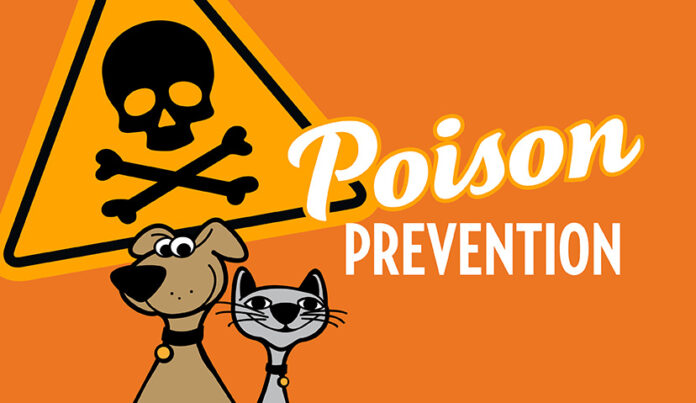Common Toxic Substances Your pet Might Encounter Inside
Just like with humans, especially kids we need to be careful and watch out for our four-legged children when it comes to poison prevention. Have you dog or cat-proofed your home? Many pet parents forget that dogs and cats can get into things just as much as toddlers! There are many hazardous materials (chemical, food & plant) in and around our homes that we may not think would be a danger to them. Whether you have pet supplies for groomers or are caring for a house pet, safety is critical.
Before leaving your cat alone with any commonplace goods, such as a dog’s flea collar or an Easter flower plant, it’s crucial to understand what they are. Some of the most typical hazardous chemicals are listed below:
- Poison houseplants
- Trash and human foods
- Many of the items humans adore—including chocolate, onions, certain fruits, and garlic—are poisonous to animals.
- Medicines and cosmetics
- Your cat could find a used toothpaste tube delicious, but it’s poisonous.
- Exclusively for dogs are flea preventive products available.
- Household cleansers and detergents—Harsh chemicals in soap, dryer sheets, bleach, and other cleaning supplies may poison your cat.
- There are several ways that Christmas décor might hurt your cat. Watch out for your kitties over the holidays. Your dogs may also suffer from all those fatty meals!
Human Foods
- Alcohol
- Chocolate
- Grapes & Raisins
- Macadamia Nuts
- Xylitol
- Pits & Seeds from Fruits
SYMPTOMS
The signs of poisoning diarrhoea and/or vomiting (the system is trying to get toxins out)
Your pet feels confused, is stumbling, or seems dizzy.
- Consciousness loss
- Panting for more than 30 minutes
- Breathing that coughs or crackles
- Higher heart rate
- Long period with no appetite
- Tongue/gum colour modification
Locking up medications and cleaning supplies, as well as keeping garbage out of your pet’s reach, are important precautions to take in order to keep your dog or cat safe. Additionally, kindly be aware that dogs may lick poisons off of their paws, essentially consuming the toxins.
Before exposing your pet to anything you are unsure about, always do some research and consult a vet near you online or at home. Make sure the local Poison Control number is readily available, and add it as a contact on your phone if necessary.
In many situations of pet poisoning, Poison Control toxicologists are valuable resources and often collaborate closely with veterinarians.
Act quickly if you see any of these signs of poisoning. Every minute matters in circumstances when life is at risk. It’s crucial to quickly identify any harmful substances.
Saving time by having the container, packaging, or label available might also save your pet’s life. To ensure continuity of treatment and the proper follow-up, always discuss your pet’s condition with the primary care veterinarian.
Are you looking for pet boarding near me in bangalore ? Get in contact now and make your pet feel the best.











